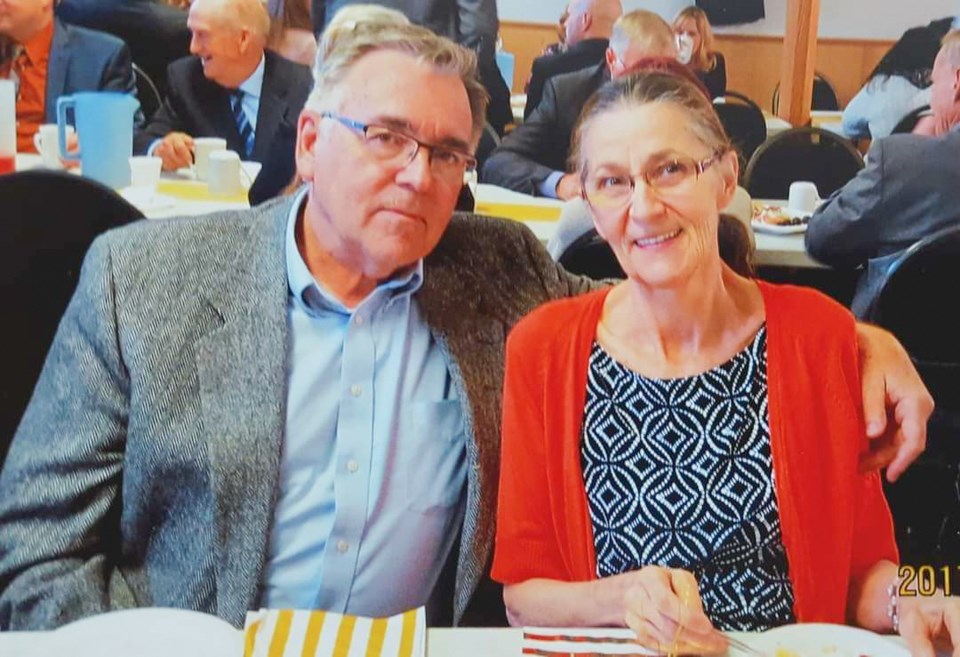CARNDUFF - Brian and Shirley Miller tied the knot in 1967 and, as part of their ceremony, they promised to be with one another and take care of each other ‘til death do us part’.
Like so many young newlyweds, little did they know what that phrase could entail.
Life was great. They raised a family while growing in their love for each other. For the most part, whatever they did, they did it together. They were more than husband and wife; they were the best of friends.
When the children moved out, the empty nest never bothered them. It meant more time for each other.
Forty years into their togetherness, the Miller family began to notice minor behavioural differences in Shirley. At first, not much thought was given to it, but two years later, it was felt that medical advice was needed. The news was not good.
Dementia was setting in.
Needless to say, the family was devastated. But in many respects, life went on as usual.
Brian and Shirley continued to travel. Although they had to put their motorcycle away, they still enjoy travelling by car. Despite the diagnosis, Shirley still enjoyed doing the things she loved, including spending lots of time with her man.
Seven years later, in 2016, the roof caved in. It was a terrible year for the Millers. Shirley spent a lot of time crying. She was at that awkward stage where she was fully aware of what was happening with her mind, but felt the futility of being unable to do anything about it.
As her behaviour became more and more unpredictable and as the need for care increased, Brian tried all sort of things. The last thing he wanted was to place her in a home, separated from him. He took her to Sunset Haven for a few hours once a week, where she used to work, to see if that would help. It did for a bit, but it became evident she needed more care.
The sad day came when Brian realized that his wife had to be placed in a home. First it was the Galloway Health Centre for two weeks of permanent respite. It quickly became apparent that what she needed was more than that. The closest facility dedicated for sufferers of dementia was St. Joseph’s Hospital in Estevan, an hour away from the Millers’ home in Carnduff.
For a number of years, Miller drove out to see his wife three or four times a week. For the first few years, he was able to take her out of the facility, but then that became increasingly difficult.
During the COVID restrictions, he’d take the drive to see her and often could only visit her through her window. That was very tough.
This past August, Shirley moved to Sunset Haven in Carnduff, meaning that Brian could travel less and see her more. And he does. He visits her twice every day at meal times to feed her. She seems to really enjoy this time together.
Shirley is no longer able to communicate verbally and Brian doesn’t know whether she knows who he is anymore. But he made that vow to her in 1967, and it’s a promise that he wants and intends to keep. As long as they both shall live.
Brian finds himself asking at times who the real victim of dementia is. The question is not an easy one to answer for him. On the one hand, he looks at his wife and sees her as the victim, one whose quality of life has been cut short far too early. Other times, he looks at himself and his family, and wonders if they’re the real victims, having a wife and a mother who, for all intents and purposes, is no longer there. Breathing, yes, but that’s about it.
Perhaps with dementia, there are multiple victims. The one who suffers from it who has reached that point of blissful unawareness of what has happened and experiences no pain. There are also the loved ones who are sadly aware of what has happened and painfully continue to love the shell of the one they once knew so well. Those who continue to look into the eyes of one so dear, and experience the deep pain of not seeing any recognition in return.
Families, like Shirley’s, are forced to put their lives on hold indefinitely, and spouses, like Brian, helplessly wait for that moment when the vow of ‘til death do us part’ no longer applies.




